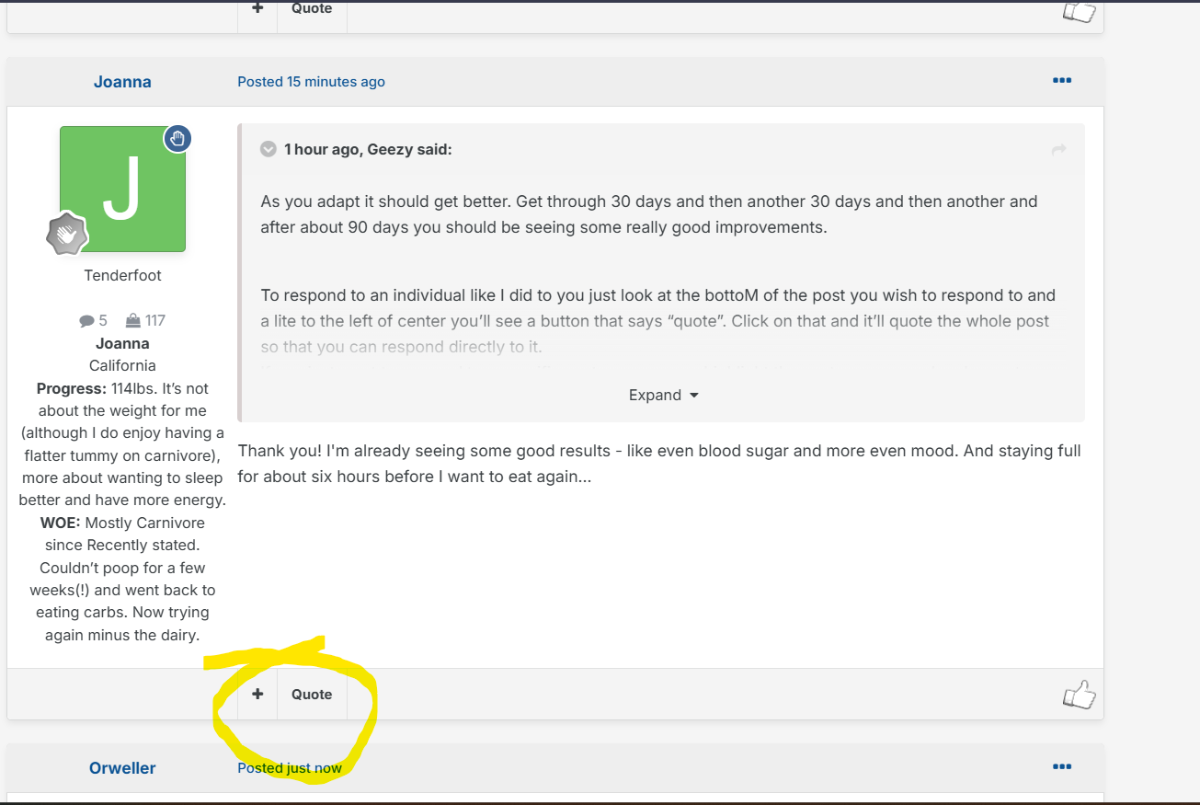Today is the first day of January and is also the first day of World Carnivore Month. To that end, let's challenge ourselves to eat a carnivore diet for the entire month of January. The type of carnivore diet and the level of strictness you choose to do is entirely up to you. Examples of carnivore diets include the following...
1) The Lion Diet. A person eating the Lion Diet only consumes the flesh of ruminant animals, water, and salt.
2) The BBBE Diet. BBBE is an acronym for Beef, Butter, Bacon, and Eggs.
3) The Carnivore Diet. This allows for the consumption of any and all animals and animal by-products, including dairy.
In any of the above examples, the object of course is to not consume any plants as part of your diet. Of course, we're not going to micromanage hoe you prepare your food, so your use of seasonings is entirely your own personal choice.
IF your circumstances don't allow you to go full on carnivore in January, then you can participate in this topic by challenge yourself to do better, above and beyond what you have been doing. For example, if you have still been eating grains, seed oils, refined sugar, or drinking alcohol, challenge yourself to avoid these items and just eat a clean, single ingredient whole foods diet such as clean keto, ketovore, or animal based.
We encourage you to check in daily, and share what you have eaten, perhaps a weigh-in if you're willing, and enjoy in some small talk. Participants in this topic will be entered into a drawing for a prize at the end of the month.









comment_10322Longevity Doctor Peter Attia Says the Red Meat-Cancer Connection Is Bad Science
Red meat might not deserve its long-standing reputation as a dietary villain, as Peter Attia, M.D., shared on the Triggernometry podcast recently.
Attia is a physician specializing in longevity and optimal health, with a background in surgical oncology and nutritional science. As the founder of Early Medical, he focuses on using research to improve lifespan and health.
Several studies have suggested red meat consumption be linked to colon cancer, diabetes, and other cardiovascular diseases. But, Attia calls this an enduring example of bad science that never dies—especially because epidemiology only identifies associations rather than causations.
"People consuming red meat and people not consuming red meat tend to be proxies, on average, for very different behaviors," Attia says.
He explains that people consuming red meat typically eat more processed foods, while people who avoid red meat usually engage in healthier habits, like eating fruits and vegetables or exercising regularly.
"When you strip all of those things away and you normalize, for say, vegetable consumption, that cancer-causing effect of red meat completely vanishes," he says.
Plus, not all red meat is created equally. Consuming a highly-processed beef jerky sticks or bacon is far different than eating grass-fed beef, he says.
Ultimately, the red meat debate is more nuanced than it’s often portrayed. Attia emphasizes that broad generalizations fail to account for critical lifestyle factors, which significantly influence health outcomes.
"When you just compare people who eat red meat versus people who don't, you're going to get that difference in risk," Attia says. "But, when you start to correct for everything—including for servings of vegetables in a day—all of a sudden, the supposed harm of red meat goes away."
ARTICLE SOURCE: https://www.msn.com/en-us/health/other/longevity-doctor-peter-attia-says-the-red-meat-cancer-connection-is-bad-science/ar-AA1xXlO2?
Subscribe to Carnivore Talk on YouTube | Be our guest on the channel | Leave me a voicemail, yo!